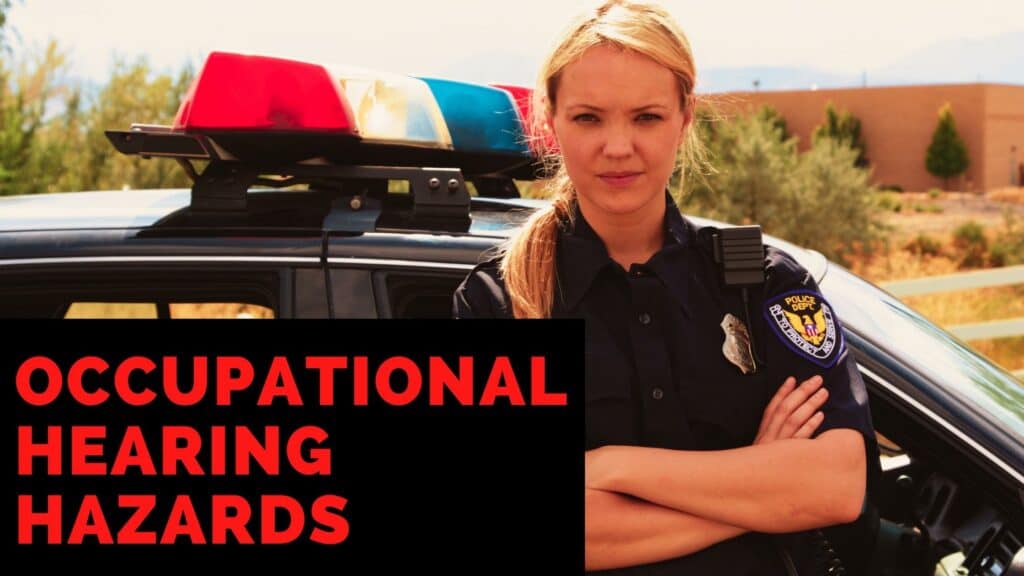You can be put at risk of noise-induced hearing place nearly anywhere, and leisure and recreational settings are some of the riskiest to keep in mind. Yet, what makes occupational settings particularly risky is the amount of time we spend in them. For a full-time worker, these hours of noise exposure add up to a serious risk, and it’s important not to understand just how risky your workplace can be for your hearing. Not all occupations pose a hearing hazard, but some of the jobs that can put you at risk of hearing loss might come as a surprise. Let’s take a look at some of the workplaces that can pose a risk to hearing. With these locations in mind, we can better understand the way that noise-induced hearing loss takes place. Getting serious about hearing protection is the best way to make sure that you are preventing future loss and keeping a safe workplace for others, as well.
Workplace Hearing Risks
You might not be surprised to find that some jobs pose a hearing risk. Anywhere that loud machines and industrial processes are in place will be a risky environment. Factories, auto mechanics, construction sites, and agricultural workplaces are all potential sources of hearing damage. In addition to these sites that might come as no surprise, others also pose a serious risk. Any job that occurs in a place where people congregate can be a hearing hazard.
Take, for instance, a job at a restaurant or bar. Though the sound of voices doesn’t seem as noisy as a piece of heavy machinery, the combination of many people trying to talk over one another can reach quite high decibel levels. Particularly when background music is playing at the same time, that process of trying to speak above the noise can lead to volumes that are dangerous for the hearing of those who work a full shift.
Though patrons might leave before the dangerous level, those who are required to work in these places of business might endure 8 hours or more of this harmful sound. Other surprising occupations include landscaping, hair styling, education, and transportation. In each case, the combination of volume and duration leads to a hearing risk. Whereas a person can endure 85 decibels of noise for 8 hours, that same person can only endure 88 decibels for 4 hours. By the time a noise level exceeds 100 decibels, only a few minutes is sufficient to cause hearing damage.
Hearing Protection at Work
The Occupational Health and Safety Administration (OSHA) mandates that all employers enforce protective measures among their employees. These protective measures include wearing protection and limiting the length of shifts in, particularly noisy locations. Many large corporations have staff devoted to enforcing OSHA regulations, and they are likely the ones to give safety tutorials and to check on the regular use of hearing protection.
However, smaller businesses might be less structured in their approach to hearing protection. Some places of business might not even realize that hearing damage is a risk, so they certainly are not mandating hearing protection. If you are concerned about the volume of noise you endure at work, take the opportunity to measure the decibel level for yourself. You can download an app for your smartphone or get a decibel meter for a more accurate measurement. Take the reading several times in the places you are likely to stand while doing a certain task. When you average these decibel readings, you will have a sense of the amount of time you can work at that particular workstation.
Wearing hearing protection will reduce the level of risky noise, and even a basic pair of disposable foam earplugs will attenuate 10 to 15 decibels of noise. When that attenuation takes place, you will be able to work longer in the same location, but you still need to remain cognizant of how long you’ve been working in the noisy location.
More advanced protective measures are available for those with high levels of workplace noise exposure, such as noise-canceling earmuffs or custom-fitted ear molds. Don’t take any chances when it comes to your hearing ability in the workplace. Your ability to hear and respond to circumstances can even be a way to protect others in your place of business, as well.





